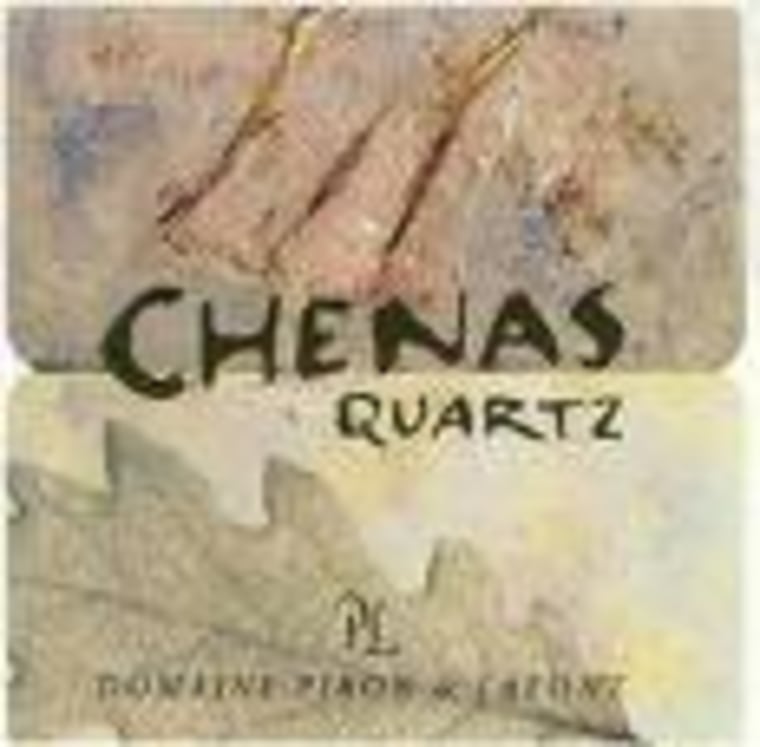This is the time of year when I think about serving lighter, crisp red wines, perhaps slightly chilled, that are refreshing to drink and match well with a range of foods, from grilled meats, chicken and duck to strongly flavored fish such as salmon and tuna.
Among my top choices in this category are the wines of France’s Beaujolais, a still underappreciated region that marks the southern end of Burgundy. While almost all red Burgundies are made from pinot noir, Beaujolais is produced from the less-tannic gamay grape, which makes for simple, fruity and refreshing wines on the one hand, and wines of considerable character and depth on the other.
My guess is that most people still identify Beaujolais with the arrival in the fall of so-called Beaujolais “Nouveau” a couple of months or so after harvest. But Beaujolais represents far more than the gimmicky release of a grapey new wine that lets producers make some quick cash after harvest. “We’re not pushing Beaujolais Nouveau anymore,” Jean Bourjade, chief executive of Inter Beaujolais, the region’s trade group, declared at a recent industry lunch.
With that in mind, the region has launched a $1.3 million campaign to get the bigger message about Beaujolais out in some key American markets. That message includes the fact that Beaujolais actually refers to a dozen separate wines, including the relatively large Beaujolais and Beaujolais-Villages appellations, but also the 10 smaller Beaujolais “cru” wines, named for the villages and areas where they are made. Each of these wines has its own identity.
The crus, from north to south in the region, are St.-Amour, Juliénas, Chénas, Moulin-à-Vent, Fleurie, Chiroubles, Morgon, Régnié, Côte de Brouilly and Brouilly. The list does, of course, illustrate the main challenge to consumers in navigating French wines — learning the names of so many of them, each representing a distinct place. But it also highlights the remarkable variety and subtleties of “terroir” that exist from village to village and that have been mapped out and analyzed, not only in Beaujolais, but in all the wine areas of France. This is, in essence, what makes French wine so interesting.
While I have tasted superb Beaujolais and Beaujolais-Villages over the years, the cru wines are likely to have somewhat more complexity and individuality for a few dollars more. In general, you’ll find them for under $20, while basic Beaujolais can be found in the $10-$12 range.
Another Beaujolais “message” is that the cru wines can develop nicely with several years or more of bottle age, a fact that was reinforced in my tastings (slightly chilled in traditional fashion) of a dozen or so wines from the 2006 and 2007 vintages. Below are some favorites, including a relative rarity, a white Beaujolais, made from the chardonnay grape.
Chateau des Jacques, Domaine Louis Jadot, 2006 Moulin-à-Vent. Bright cherry fruit with a layer of cedar; good acidity and a long finish; elegant. $19. (Imported by Kobrand Corporation, Purchase, N.Y.)
Potel-Aviron 2006 Côte de Brouilly. Delicate and nuanced with ripe black cherry, mineral and earth notes; moderately tannic; reminded me of pinot noir. $18. (Frederick Wildman and Sons, New York.)

Domaine du Clos du Fief — Michel Tête, 2006 Juliénas. Bright and complex with a “steeliness” in the aroma that reflects the wine’s minerality; raspberry is the main fruit note; lighter in body with refreshing acidity. $22. (Louis/Dressner Selections, New York.)
Domaine Depeuble Père et Fils Beaujolais 2007. Classic, uncomplicated Beaujolais filled with red and dark berry notes and spicy and floral touches; good value. $12. (Kermit Lynch Wine Merchant, Berkeley, Calif.)
Domaine Pascal Granger “La Jacarde” 2007 Beaujolais Villages Blanc. This is chardonnay I could drink every day; delicate, slightly herbal with pear and vanilla notes; subtle oak integration; drink cool but not cold. $19. (Rosenthal Wine Merchant, New York.)
Edward Deitch is the recipient of the 2007 James Beard Foundation Journalism Award for Best Multimedia Writing. He welcomes comments from readers. Write to him at